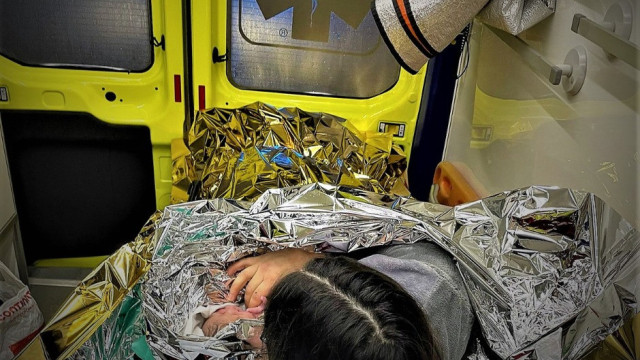A baby was born in the entrance hall of a building in the center of Coimbra during the early hours of Tuesday morning.
The woman reportedly gave birth in the hall of her residence on Rua da Figueira da Foz at around 5:00 a.m.
The Coimbra Red Cross was called to the scene, but upon arrival, the baby had already been born.
A team from the National Institute of Medical Emergency (INEM) and two officers from the Public Security Police (PSP) arrived subsequently.
Both the mother and the baby were taken to the Dr. Daniel de Matos Maternity Hospital and are “in good health.”
This year alone, approximately 50 babies have been born in ambulances or at home, according to reports from fire brigades on social media. The actual number might be higher, as not all incidents are reported.
The Minister of Health, Ana Paula Martins, provided data in a parliamentary hearing on September 17, indicating an increase in out-of-hospital births.
Speaking before the Parliamentary Health Committee, Ana Paula Martins stated that about 150 births outside hospital settings have been registered this year (in ambulances, on the street, or at home), noting that although there is no objective data, INEM’s reports suggest an increase in home births.

The Lusa news agency verified the accuracy of figures presented by the PSD. Here is their response.
Lusa | 09:01 – 30/09/2025
At the end of April, the Minister of Health acknowledged the need to ensure fewer babies are born in ambulances. Ana Paula Martins noted, however, that babies have always been born in ambulances and will continue to be in some instances because it is unavoidable in certain situations. “But naturally, that is not at all our goal,” she stated.
In August, the executive director of the National Health Service (SNS), Álvaro Almeida, noted an increase in non-hospital births but denied linking this to the closure of obstetrics and gynecology emergencies.
“There is indeed a slight increase in the number of births outside the home and hospitals, about six more this year compared to last year, but this does not correspond or is not directly related to the closures of emergencies. That is because the number of closures is lower this year than last year,” he said.
Additionally, INEM argued that “pre-hospital births have always occurred, with reasons ranging from late calls to 112 and situations where birth was imminent at the time of the call, among others.”




